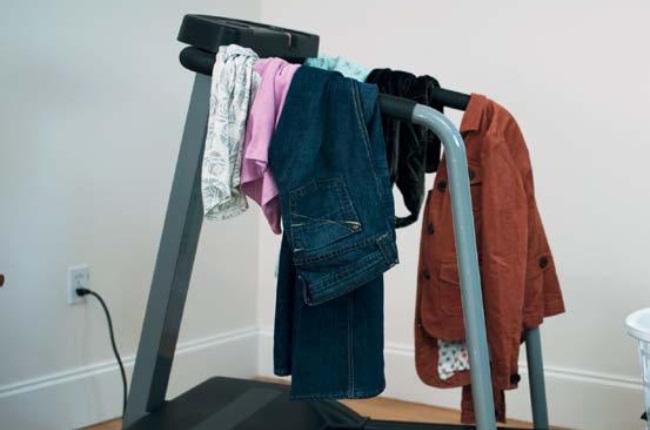
Fed up with feeling guilty everytime you eat a choccie or put your feet up? Here's how to make this powerful emotion work for you.
We all know that sinking feeling that settles in the pit of your stomach. Many m oms who’ve had to get a nanny for the baby or dads who’ve missed a school play because of work have felt it. Every dieter tucking into a piece of delightfully sinful cake has experienced it and every person who’s had to cancel a social date because they’re so exhausted is familiar with it.
It’s guilt – the all-consuming emotion that’s so common in our lives, often for more than one reason at any given time. It leads to stress and heightened levels of anxiety that can be crippling. The good news is it doesn’t have to. In fact, feelings of guilt can lead to positive changes in your life if you learn how to harness the emotion and its negative associations, experts say.
“Guilt either spurs you into action or leaves you paralysed,” says Ilze Alberts, a psychologist at Bella Vida Centre in Johannesburg. “If you feel guilty about spending too little quality time with your wife it can motivate you to make a positive change and have a date night once a week.
READ MORE| Feeling unfulfilled in your marriage? This may be why
“On the other hand, it can lead to depression and resentment. An example of this is a mother who feels guilty about working too much and not spending enough time with her kids. She starts to feel resentment towards her work.” Working through your feelings is important because leaving guilt to fester can cause emotional problems such as depression, says Yolandi Benadè, a Johannesburg-based life coach.
It’s often easy to overcome guilt simply by acknowledging that what you did was wrong, then apologising and forgiving yourself. But when it comes to more complicated feelings you need to analyse what the guilt means to you in order to overcome it. Our experts show you how not to feel guilty – and how to use the emotion to positive effect.
Firstly you need to realise that what you’re feeling is guilt. Next you need to get to the root of why you feel this way, Benadè says. There are two types of guilt, each with its own potential advantages.
Deserved guilt
If you feel guilty because you’ve done something that’s morally wrong or unethical, use this as an opportunity to make a change for the better. “Guilt from that perspective is a wonderful thing,” says Barbara Johnson, a development specialist of Hillcrest, KwaZulu-Natal.
“It can motivate you to make amends, ask for forgiveness and do things differently.” For example, if you feel guilty about gossiping about a friend you can get rid of your guilt by apologising.
“Your guilt encouraged you to change yourself for the better,” Johnson says. Learn from the experience, Benadè advises. “Ask yourself, ‘How could I have dealt with that situation instead.’ So the next time it happens you’ve thought about how to act and it’s easier to do it differently.”
Undeserved guilt
This type of guilt is much more complicated because your life experiences and personality determine how much, how often and what you feel guilty about. Just because you feel guilty doesn’t mean you’ve done – or not done – something to justify it. “The best way to deal with this type of guilt is to think of it as the two sides of a coin,” Alberts says.
“Every situation has positive and negative sides. If you’re able to see the positive side, your guilty feelings will subside. It’s an amazing life skill to have.” But how to see the positive sides when racked with guilt? The experts share their tips.
You didn’t visit your mom.
You promised to visit over the weekend but with running a household and spending time with your kids you just didn’t have the time. “Ask yourself if this is practical arrangement,” Alberts says. “If it’s unrealistic, talk to your mother and make another arrangement.” It might suit your schedule better to visit on Wednesday afternoons or on a day you get off work earlier.
Work keeps you from spending time with your family.
Work easily eats into family time, which inevitably leads to feelings of guilt. There are however many positive aspects to this scenario. You might be up for a promotion because your bosses have noticed you’re a hard worker and regard you as an asset. Your hard work also means your family can afford to live in a pleasant house, you have comprehensive medical aid, your kids go to a good school and you and your brood can enjoy a relaxing holiday every now and then.
If knowing your work facilitates these things
isn’t enough to banish the guilt, ask yourself if
the extra hours are warranted. Discuss it with
your family. They might prefer you to get another job where you earn less but the hours
are shorter.
Discuss it with your boss – they might allow
you to work flexible hours. Or set boundaries,
such as no work on Sundays after 9 pm.
You choose your social life over work.
Many of us feel guilty about working too hard but there are probably an equal number of people who feel they’re not doing enough at the office. In this age of connectivity we feel we should be doing more – nobody wants to be seen as the person who works “half-day” because they leave at 5 pm.
The obvious positive in this is that it’s necessary to have a work-social life balance to deliver quality work. If you’ve spent time with family and friends instead of studying for an exam all day you’ll have the energy to hit the books for a few hours because you’re relaxed.
And if you leave the office at a reasonable hour you have time to rest and allow your brain to process things so you can deliver the next day. Spending time with family also improves your general wellbeing, with positive spin-offs for your work.
READ MORE| Break the habit: how to stop negative behaviours from standing in your way
You don’t exercise regularly.
While your trainers are gathering dust in your cupboard, most of your friends get up bright and early to go for a run. Ask yourself: what exercise do I get during the day? “For example, you clean the house, play with your kids, walk to work or take the stairs instead of the lift.
These are all forms of
exercise,” Alberts says.
Also look at your priorities – do you want to
spend an hour a day exercising or would you
rather use that time to help your kids with their homework, spend time with your spouse or work in the garden (which also counts as
exercise).
You’re on a diet but you ate a slice of cake.
You colleague brought cake to work and you couldn’t resist despite the fact you’re trying to shed a few kilos. “Don’t beat yourself up,” Alberts says. “Ask yourself why you ate the cake and why it was a positive thing. For example, you didn’t stand out as the person who’s always dieting or it motivated you to go for a walk after work.”
You cancelled a lunch date with a friend.
You’ve had to take a rain check on your weekday lunch date because you were too busy at work. It’s not quite the same as cancelling on your mom – in this case you must prioritise. “People always choose to do what’s most important to them. In this case you chose your job over your friend and you shouldn’t feel guilty about it,” Alberts says.
“Tell her you’re too busy during the week and make another plan to meet.” But follow through with your new date, especially if it’s at a time you’ve said works better for you, otherwise a fresh bout of guilt will set in.
EXTRA SOURCES: RD.COM, UNISA.CA.ZA




 Publications
Publications
 Partners
Partners




















